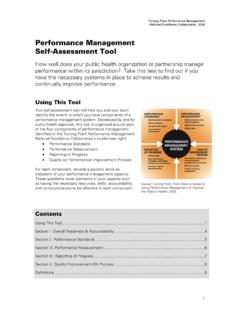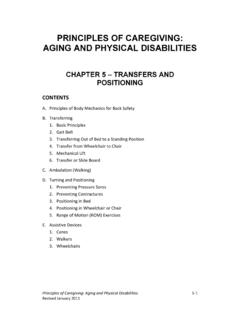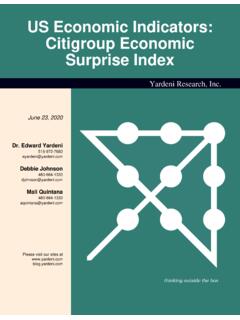Transcription of A brief history of hacking - steel.lcc.gatech.edu
1 A brief history of bsd > . zuley clarke / james clawson / maria cordell november 2003. LCC 6316: Historical Approaches to Digital Media table of contents the evolution of hacking .. 1. the drive to hack .. 2. cultural infiltration .. 4. event timeline .. 6. bibliography .. 8. LCC 6316: Historical Approaches to Digital Media the evolution of hacking Though it wasn't yet called hacking , the earliest known incidents of modern technological mischief date from 1878 and the early days of the Bell Telephone Company.
2 Teenage boys hired by Bell as switchboard operators intentionally misdirected and disconnected telephone calls, eavesdropped on conversations, and played a variety of other pranks on unsuspecting customers (Slatalla 1).1. first hacks The first bona fide appearance of a computer hacker occurs nearly 100 years later, in the 1960s. A hack has always been a kind of shortcut or modification a way to bypass or rework the standard operation of an object or system. The term originated with model train enthusiasts at MIT who hacked their train sets in order to modify how they worked.
3 Several of these same model train hackers later applied their curiosity and resourcefulness to the then new computer systems being deployed on the campus (CNN 1). These and other early computer hackers were devout programming enthusiasts, experts primarily interested in modifying programs to optimize them, customize them for specific applications, or just for the fun of learning how things worked. In many cases, the shortcuts and modifications produced by these hackers were even more elegant than the professional programs they replaced or circumvented.
4 In fact, the most elegant and enduring hack from this period is the UNIX. operating system, developed in the late 1960s by Dennis Ritchie and Keith Thompson of Bell Labs. The 1970s produced another type of hacker, one focused on telephone systems. Known as phreakers, these hackers discovered and exploited operational characteristics of the newly all-electronic telephone switching network that enabled them to make long distance calls free of charge. The phreaker movement is an important early example of anti-establishment subculture that spawns influential hackers and visionaries in the realm of the personal 2.
5 Computer. the golden era hacking enjoyed a golden era of sorts in the 1980s. The introduction of turnkey personal . computers by Radio Shack, IBM, Apple, and others is a turning point in hacker Now computers were no longer limited to the realms of hardcore hobbyists and business users;. anyone, including existing and yet-to-be-realized hackers, could acquire a computer for their own purposes. Modems, devices that enabled computers to communicate with each other over telephone lines, were also more widely available and significantly extended the hacker's reach.
6 It was just this sort of capability that was explored and popularized in a number of popular books and films at this time, beginning with 1983's movie, War Games. The central character, a young, suburban hacker, taps into a remote military computer by dialing into it from home using a personal computer and an acoustic coupler, an early type of modem. War Games was followed in 1984 by Steven Levy's publication of Hackers: Heroes of the Computer Revolution, in which he details early hacking history and summarizes the hacker credo of this and earlier eras: Access to computers, and anything that might teach you something about the way the world works, should be unlimited and total.
7 A split forms Although hacking expanded and enjoyed glorification during its golden years, a divide was forming within the hacking community by the late 1980s. An increasing number of hackers were no longer satisfied with benign exploration of systems merely to learn how they worked. The hacker principle of freedom of technology as described by Levy was changing, and a younger generation interested in individual gain emerged. 1. Interestingly, this apparently is at least one factor for the Bell Telephone Company's decision to go to an all-female operator workforce early in its operation.
8 2. Apple Computer founders Steve Jobs and Steve Woz Wozniak got their start by selling phone phreaking devices while still in college. 3. Personal computers had been available for sometime before this, but they generally required assembly and more intimate hardware knowledge to assemble and maintain. They were also far less widely marketed and distributed. 1. This new breed of hacker directed its knowledge and tenacity toward distinctly criminal pursuits, including the distribution of pirated commercial software, games, and viruses and worms that could virtually shut down systems.
9 The dark side fragmented even further as several groups formed electronic gangs, driven to tap into the sensitive information housed within large institutions, like government and educational research centers. As happens with conventional street gangs, it didn't take long for these groups to begin fighting each other, and the early 1990s saw an escalation of infighting that jammed phone lines and networks, and ultimately led to the demise and criminal prosecution of several groups. criminalization Legislators and law enforcement began to get serious about criminalizing and prosecuting these activities in the mid-1980s.
10 Congress passed its first hacking -related legislation, the Federal Computer Fraud and Abuse Act, in 1986. The act made computer tampering a felony crime punishable by significant jail time and monetary fines. By the mid-1990s several high- profile arrests had taken place and signaled the seriousness with which government and businesses were dealing with these activities. Kevin Mitnick, perhaps the best known hacker of this era, was arrested twice, served significant jail time, and was barred from touching a computer for several years after completing his sentence.







